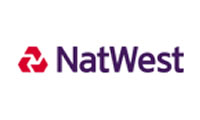
Buying your home
Buying your home is the largest purchase you are likely to make and before starting you need to determine how much money you have for a deposit and what you can afford to borrow. Lenders can provide you with a mortgage in principle and the amounts you can borrow are based on affordability taking into account your outgoings.London City Mortgages can help you with this process whether you are a first time buyer or re-mortgaging your home or investing in a buy to let property. You can start by asking for a free online mortgage quotes from our adviser which will include helpful guide on the amount you are likely to secure from a mortgage.
What is a mortgage?
A mortgage is a loan from a lender taken out to buy a property or land. The length of the mortgage is usually 25 years but you can choose a shorter or longer term. The lender could insist on a shorter term, such as for older applicants, as they may have a maximum age limit for their mortgage.The loan is secured against the value of your home until the end of the term or you pay off the mortgage, such as when you sell the property. If you cannot maintain the mortgage payments the lender may agree alternative repayment terms or repossess your home to sell in order to recover their loan.
Working out affordability
Lenders are required to determine if the mortgage you are applying for is affordable so you need to work out beforehand what you can afford. Lenders will reject applications that do not meet their stringent requirements so you need to do this exercise first to avoid disappointment later. Lenders will take into account your outgoings such as the following:| Your outgoings lenders will consider |
|
|---|---|
| Credit cards | Existing loan payments |
| Childcare | School fees |
| Food, groceries | Toiletries |
| Travel costs | Household bills |
| Insurance | Holidays |
Lenders also apply a ‘stress test’ to see if you can afford paying up to 7% interest on your mortgage should interest rates rise further. They will want to see proof of your income and expenses such as your payslips and bank statements to ensure you can keep up the mortgage repayments.
Deposit for your home
Raising the deposit for a property can be difficult as property prices continue to rise, although there are many mortgages and schemes that allow you to place only a 5% deposit.If you have a larger 10% deposit there will be a much greater choice of lenders and with a 25% deposit lender rates are very competitive. There is also assistance if your income is not high enough such as the government’s Help to Buy scheme for first time buyers and home movers. Housing Associations can also help you own your own home with Shared Ownership schemes.
Lenders require borrowers to show they can afford to commit to a property purchase by making a deposit. The larger the deposit the lower the risk to the lender and therefore they can offer a much better mortgage deal.
The amount you borrow is shown as a loan to value (LTV) percentage. For example, if you have a £20,000 deposit on a £200,000 property this would represent 10% of the property value. This represents a 90% loan to value and the mortgage is secured against this portion.
If your LTV is lower you will receive a lower interest rate from the lender as the risk to them is much lower. With a 75% mortgage LTV you can expect very good interest rates although with a 60% LTV you will receive the best rates in the market.
Paying back your mortgage
A mortgage from a lender is a loan and the amount you borrow from them is known as capital. The type of mortgage will depend on whether you want to repay the interest only or interest and capital repayment.If you selected a repayment mortgage each month your payments would include interest on the loan and the repayment of capital. As you pay back the capital every month the interest you pay will reduce until at the end of the term you will fully own your property. As you are paying interest and capital the amount you pay each month is greater than an interest only mortgage.
If you select an interest only mortgage the payments you make will only repay the interest and at the end of the term the capital borrowed must be repaid as a single lump sum. As you are not paying off the capital with this option it means your monthly payments are lower than a repayment mortgage.
As an example, if you bought a home for £250,000 and had a £50,000 deposit, the loan to value would be 80% of the property value giving a mortgage of £200,000 for a 25 year term. Let’s say your mortgage rate was 2.75% this would mean your interest only payment would be £458 per month. If you had a repayment mortgage your payment would be £922 per month.
At the end of the 25 year term with the repayment mortgage you would own your own home with no more payments to make but with an interest only mortgage you would owe £200,000 to the lender.
With the changes in the Mortgage Market Review (MMR) lenders have tighter criteria for interest only mortgages and you would need to show you have a repayment vehicle, such as an Individual Savings Account (ISA), endowment or pension lump sum to repay the capital.
To keep the payments down in the early years, some lenders would allow you to combine both interest only and repayment and change this when your income is higher in the future.
Finding the right mortgage
After you have decided on the method of paying back your mortgage there are a number of mortgage types to consider are as follows:| Type of mortgages you can consider |
|
|---|---|
| Standard variable mortgage | Discounted mortgage |
| Tracker mortgage | Fixed rate mortgage |
| Capped mortgage | Offset mortgage |
Many lenders make special offers to borrowers with a discount mortgage that is cheaper than the standard variable for a fixed period of time, such as two or three years. At the end of the period the rate returns to the standard variable and during the term can go up or down with interest rates. Another version is the tracker mortgage which is linked specifically to base rates and can change over time.
One way to limit how high the rate rises is to have a capped mortgage and this would cost you more as it is guaranteed not to rise above a certain level.
If you would rather not have a variable rate you can have a fixed rate mortgage although this is slightly more expensive as the monthly cost is guaranteed not to change. A fixed term mortgage has a typical term of two to five years and is popular when interest rates are predicted to rise in the future.
As an alternative you could consider an offset mortgage where you link your savings and current account to your mortgage. The advantage here is you continue to pay your mortgage each month and make over payments using your savings. This can reduce the amount of interest you pay over the term or you can even clear the mortgage and own the property early.
Buying your Home Best Buys
These are examples of mortgage products we can approach with many more offering interest rates and flexibility to meet your needs.
 |
| 1.32% Fixed Rate |
| 60% Loan to Value |
| £2,295 App Fee |
| Until 30/09/2022 |
| Reverts to 4.44% |
 |
| 1.24% Fixed Rate |
| 60% Loan to Value |
| £2,034 App Fee |
| Until 30/09/2022 |
| Reverts to 5.59% |
 |
| 1.35% Fixed Rate |
| 60% Loan to Value |
| £1,377 App Fee |
| Until 30/09/2022 |
| Reverts to 4.09% |
 |
| 1.36% Fixed Rate |
| 60% Loan to Value |
| £2,001 App Fee |
| Until 31/10/2022 |
| Reverts to 4.84% |
Get started now with a
free mortgage quote
As mortgage advisers we can do the work for you to find the best mortgages.
Access your quotes via your dashboard to start your mortgage application online 24/7
using a tablet or smartphone if you are on the move or from the comfort of your home.
GET YOUR FREE QUOTE
The latest mortgage news

Stamp duty holiday extension not being considered by government
The government is not considering a stamp duty holiday extension after calls for more time following the latest Coronavirus Tier 4 rules.

Fewer homeowners think their property has increased in value for November
For the month of November a survey from Halifax showed 14% of households believe the value of their homes has increased.

Slow demand for housing remains third higher than a year ago
Demand for housing is a third higher than a year ago although it has been slowing since the start of the stamp duty holiday.

Top 20 fastest selling locations when buying UK properties
It helps sellers and buyers if properties can sell fast and here are the results from Zoopla of the top 20 fastest selling UK homes.
Equity Release may involve a Lifetime Mortgage or a Home Reversion Scheme. To understand the features and risks, please ask for a personalised illustration. Equity Release may affect your entitlement to means tested state benefits and will impact on the size of your estate. For Equity Release London City Mortgages charge a fixed fee upon completion of £695. For Mortgages a fixed fee is charged on application. Typically this is from £295 up to £495 for the services selected.
Equity Release - Equity Released from your home will be secured against it. Mortgages – Your home may be repossessed if you do not keep up repayments on your mortgage or other loans secured against it. Think carefully before securing other debts against your home. The information contained in this website is subject to the UK regulatory regime and is therefore intended for consumers based in the UK.
CONTACT
Address:
9th Floor, 30 Crown Place
London, EC2A 4EB
Phone:
0800 955 0058
Email:
info@londoncitymortgages.co.uk
London City Mortgages Limited is a registered company in England & Wales under company number 09278987. London City Mortgages Limited is an Appointed Representative (FCA no. 655965) of Blackstone Moregate Limited (FCA no. 459051) which is authorised and regulated by the Financial Conduct Authority. LCM and LCM Equity Release are trading names of London City Mortgages Limited.
